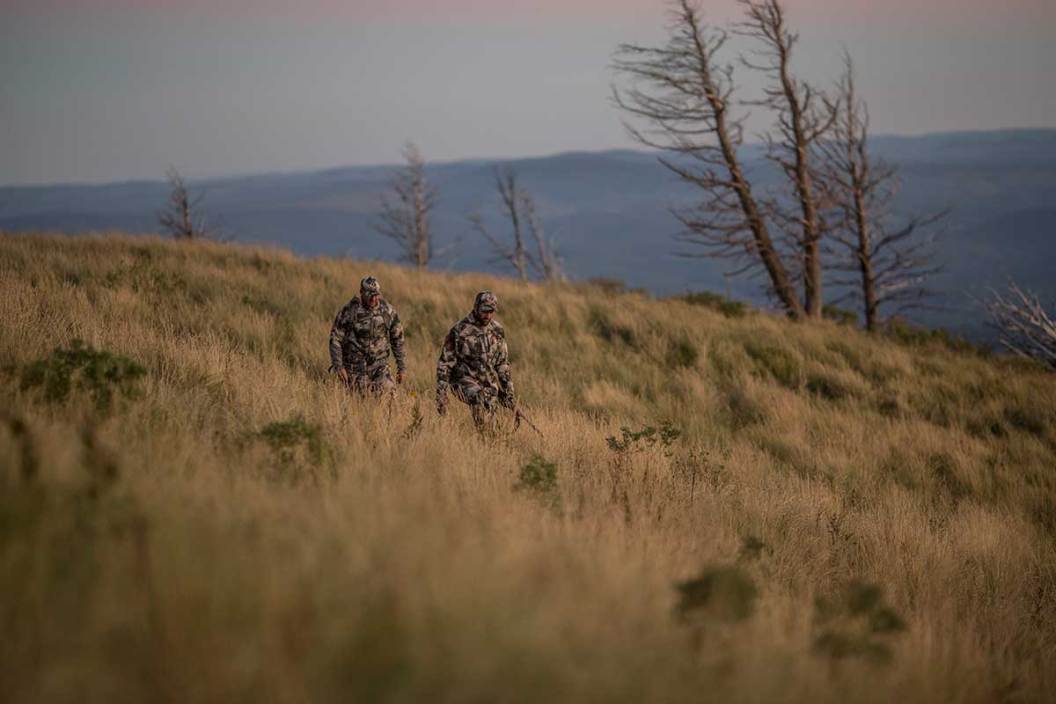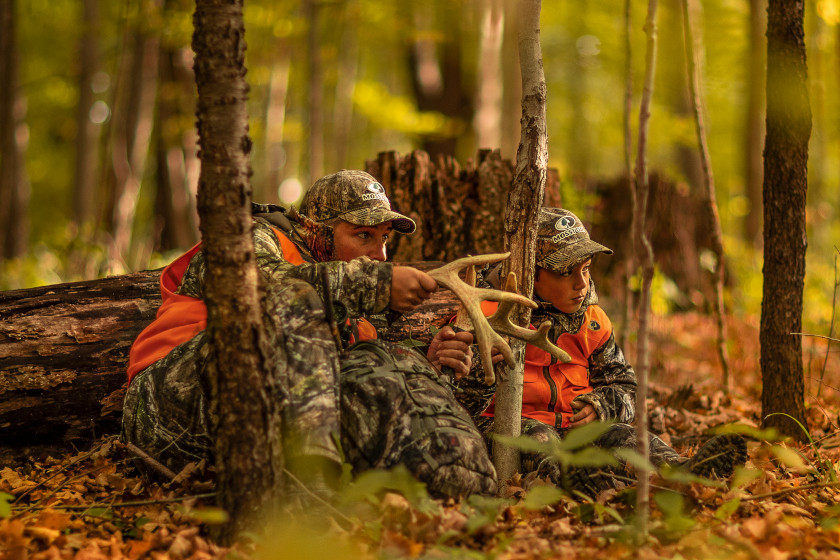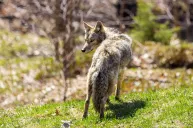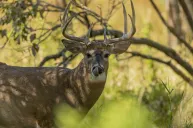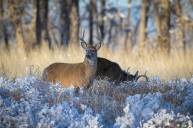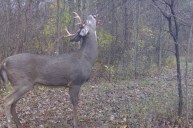Hunting whitetail deer is an involved process, combining mental, physical needs, and a determined strategy. In fact, any type of hunting can cause us to rethink our best laid plans. We've spent a lot of time studying our favorite game animals and finding gear and techniques to give us an edge. When we set out to put it all together, sometimes the smallest issue gets in the way.
With deer hunting, there have been attempts to decrease the effects of these small things. There can be little doubt the effect our human odor has on whitetails and as a result, scent control has turned into a serious hunting industry sector. But generally speaking, the first thing that alerts deer or any other wild game to our presence is the sound we make, whether we're trying to sneak our way into the woods or draw back our bow.
Hunters of all types throughout history have spent eons trying to be quiet in the woods to fool wild game, but the noise we make shouldn't be the only thing we need to be aware of. Listening in on the other creatures in the woods and on the waters of the world can go a long way towards our understanding of what wild animals do and think. And it can help us to be more successful.
Unintended Noise
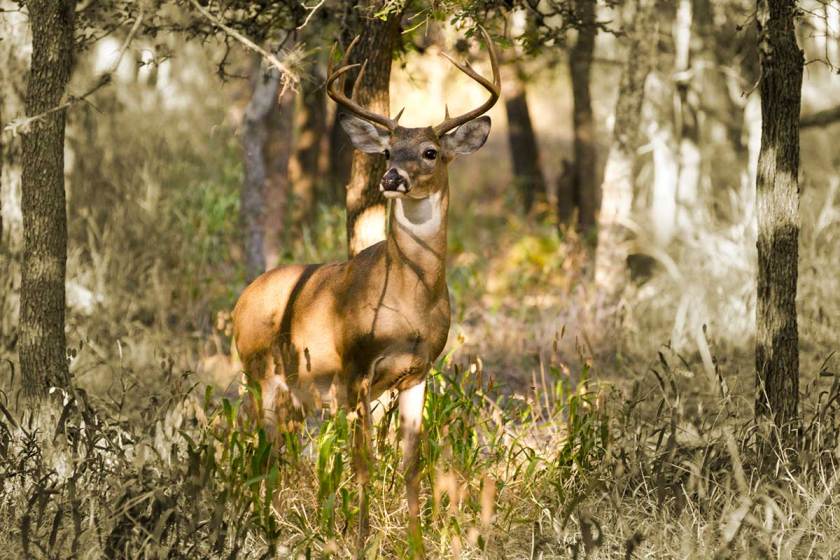
Medley of Photography/Getty
Sometimes, it's simply hard to be completely quiet while hunting. We know not to talk and to put our cell phones on silent, but it's the unintentional noises we make that can spell disaster. Climbing a tree, walking through water, coughing, sneezing, breaking branches, snagging clothing, and a plethora of other things all make it tough, especially when the wild game that we are trying to fool are on high alert. The worst part is that it is completely unnatural for us to be there in the first place.
Our best advice is to slow down. We're not just talking on the walk to the stand or blind either. Get more precise in your every movement in the stand. Most actions in the stand don't need to be rushed, and this helps greatly with controlling noise. Look into apparel that lessens the amount of sound as it rubs against itself. It doesn't hurt to try on a jacket or pants and then mock out the typical movements you'd make while hunting. This will help eliminate noisy clothing articles from contention for your next purchase. It also helps ensure you'll be mounting a weapon as quiet as possible.
Intended Noise
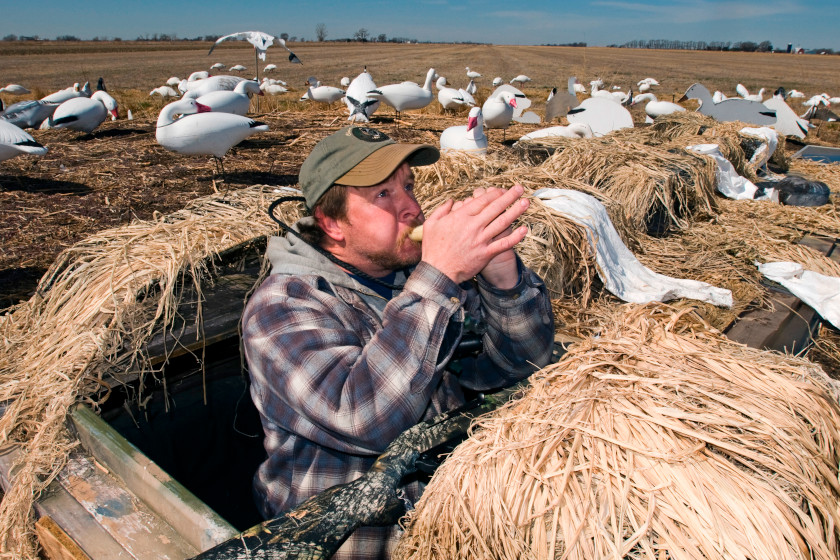
Education Images via Getty Images
We place so much emphasis on remaining silent in the woods that it can seem counterintuitive to intentionally make noise. However, an entire hunting call industry was born many years ago and thrives to this day. It proves that sometimes it's better not to stay completely silent. We're not sure who the enterprising hunter was who first used his or her mouth to make a call, but it definitely graduated soon after to the use of tools like bones, blades of grass, or wood in the effort to create the sounds of wild animals.
While we've come a long way from the days when we discovered that certain materials, when rubbed together, can sound exactly like a hen turkey, calling is still something of an art form. You shouldn't take the making of these sounds lightly. Think of calling like the process of humans speaking. If you say the wrong thing to an animal, they're going to avoid you, just like a person would. We highly recommend investing the time not just to buy a call, but to learn how to use it properly, and in which situations. Anyone can clash two antlers together in a rattling sequence, but if you do it at the wrong time, you're going to scare more deer away than you'll attract. The same goes for many different calls and all species of game animal.
There is usually not a one size fits all approach for many game birds. One subspecies of turkey or duck may respond better to a specific type of call at a certain time of year than another subspecies will. It takes some homework and some practice to master the art of game calling, but once you do, they are vital skills and some of the most intentional sounds you'll ever make. Remember the regulations too. In most states, the use of electronic calls for species like deer, turkeys, and waterfowl is inherently illegal. These types of calls are often only legal when pursuing predators such as bobcats, coyotes, or foxes.
Natural Noise
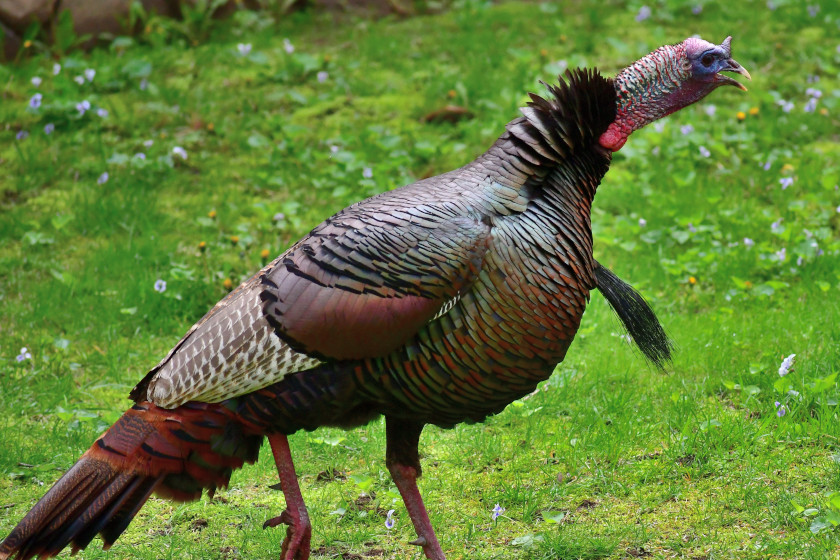
Robert Winkler via Getty Images
The effects of our own unnatural sounds on the game we pursue are obvious. Most of us know when a hen turkey decides to putt, a squirrel starts barking, or a whitetail doe blows at you, it means you are busted. However, we sometimes neglect to think about what other natural sounds are communicating to our prey. For example, songbirds and non-songbirds alike make sounds that can be quite calming to deer and other game animals when they are feeding. However, these same birds also often have their own alarm calls. Other animals are tuned into what the sounds of the wilderness mean, and it might work against you.
In that way, it pays to learn the different distress calls of animals and how to recognize them. You might be surprised to learn a resident bird or other small animal has been actively alerting all the other wildlife in the woods to your presence without you ever knowing about it. At that point it could be as simple as a shift of location to fix it. But far too many hunters sit through many fruitless hunting sessions because they failed to recognize the creatures they were hunting knew they were there the whole time.
Being Stealthy Outdoors
Movement begets sound, and there's not much we can do about it, but in the case of human beings vs. wild animals, where there's a will there's a way. In truth, patience might be our best tool in the woods since it can be the best way to overcome unwanted sounds and remain undetected. We know you're excited to get to your hunting spot. Stopping often and keeping an eye out for your surroundings is a preemptive way to cut out the unnecessary noise.
Think about the weather and how it affects sound before you head out, too. Dry conditions make for a more difficult approach than when the woods are wet or moist. When it's dry, try to avoid leafy areas or areas with a lot of twigs and branches that can snap or crack. If you can cut pathways to your stand or blind, that decreases the rustling sounds of grass or other vegetation swishing against your clothing.
You never know where your target game animal is going to be. Ever jumped a deer on the way to the stand? We rest our case. You want to be a true ghost of the forest through all aspects of the hunt. You need to go in and out without anything ever knowing you were there. It may seem extreme to consider sound through your arrival and departure from the woods every time, but this is a tactic that is utilized by some of the best hunters out there. You know, the guys who consistently bag big bucks year after year.
Combine that approach with quieter clothing and a more deliberate calling approach, and you may be surprised at how many more game sightings you have this season. Sometimes it's the little things that have the most impact.
Please check out my book "The Hunter's Way" from HarperCollins. Be sure to follow my webpage, or on Facebook and YouTube.
